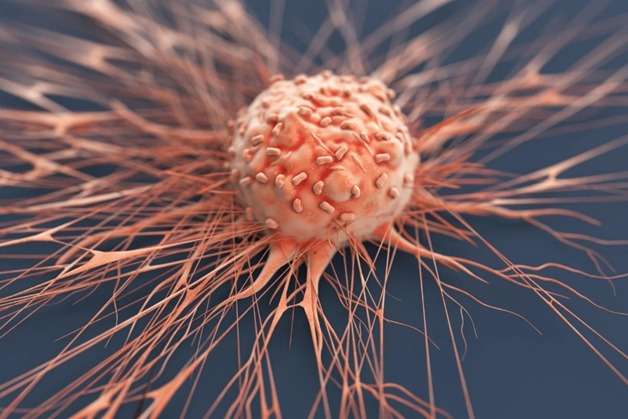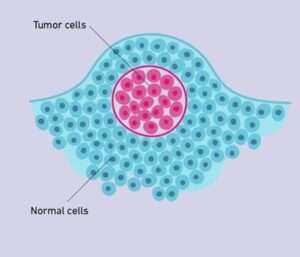CyberKnife Treatment in Kenya
The term Cancer fills many people with dread and causes a whirlwind of feelings like rage, sadness, and confusion. cancer leaves us feeling helpless and overwhelmed.
“Cancer is a formidable opponent, but with advancements in medical science, personalized care, and unwavering determination, we can empower patients to fight with courage and resilience,” says renowned radiation oncologist Dr. Sridhar PS. “One such remarkable treatment option is CyberKnife, a revolutionary advancement in cancer care.”
The CyberKnife procedure is a breakthrough in precision radiation therapy and opens up new avenues for the fight against cancer. CyberKnife delivers highly focused radiation to malignant tumours with sub-millimetre accuracy while sparing surrounding healthy tissues thanks to cutting-edge robotic technology. Tumours in difficult places, such as the brain, spine, lung, liver, and prostate, respond well to treatment with this non-invasive technique.

Dr. Sridhar understands that the journey through cancer is a deeply personal and emotional one. He believes in providing cancer treatments with a human touch, where compassion and state-of-the-art technology converge to offer hope and healing.
Dr. Sridhar PS is among the leading oncologists for cancer patients not just in Mumbai and Bengaluru – India, but also for people seeking CyberKnife treatment in Kenya and Africa.
Understanding CyberKnife Treatment

CyberKnife treatment is a revolutionary, non-invasive form of radiation therapy that employs robotic technology to deliver precise and targeted radiation to malignant (cancerous) tumours.
The CyberKnife system is made up of a robotic arm with a radiation delivery tool that is controlled by breakthrough imaging technologies. This enables pinpoint precision during treatment by enabling real-time tracking of tumour movement.
“Radiation exposure to the surrounding healthy tissues is kept to a minimum while the radiation beams accurately focus on the tumour from various angles,” explains Dr Sridhar PS, a cancer expert well-known for CyberKnife treatment in India.
Conditions Treated with CyberKnife
CyberKnife radiosurgery is a flexible therapeutic approach that can successfully treat various illnesses. The following are a few ailments that the CyberKnife surgery can treat:
Malignant Tumors:
CyberKnife cancer treatment enables precise and targeted radiation therapy for malignant tumours in various body regions, including the brain, lung, prostate, liver, spine, etc. It is an effective cancer therapy option because it can deliver large doses of radiation to tumours while minimizing exposure to healthy tissues.

Non-Cancerous (benign) Tumors: The CyberKnife is also effective in treating benign tumours throughout the body, including:
- Acoustic neuromas – tumours on the nerves that control balance and hearing.
- Arteriovenous malformations (AVM) – abnormal collections of blood vessels in the brain or spinal cord.
- Meningiomas – slow-growing tumours that develop in the membranes surrounding the brain and spinal cord.
- Pituitary adenomas – tumours in the pituitary gland, which controls hormone production.
- Schwannomas – tumours that develop along the peripheral nerves throughout the body.

Functional issues: CyberKnife radiotherapy can assist in managing some functional problems in addition to treating tumours. Trigeminal neuralgia, a disorder that causes excruciating facial discomfort, serves as one illustration. The CyberKnife treatment for trigeminal neuralgia can administer radiation to the nerve causing the pain, relieving it and enhancing the patient’s quality of life.
Empower your fight against cancer with CyberKnife – Schedule an Appointment
CyberKnife is among the leading treatments for cancer due to various advantages, such as:
Non-invasive procedure: CyberKnife radiation is a non-invasive and non-surgical alternative that does not require incisions or anesthesia.
High accuracy: CyberKnife’s robotic technology enables sub-millimetre radiation delivery with highly precise tumour targeting.
Real-time tumour tracking: CyberKnife uses cutting-edge imaging and tracking technologies to monitor and correct tumour movement throughout treatment, ensuring precise radiation delivery.
Minimized damage to healthy tissue: Because of CyberKnife’s accuracy, there is minimal damage to healthy tissue, which helps prevent radiation exposure to nearby organs and healthy tissues.
Shorter treatment time: When compared to conventional radiation therapy, CyberKnife treatment frequently takes less time, usually only requiring a few sessions.
Outpatient procedure: CyberKnife treatments are often given as outpatient procedures, allowing patients to go home the same day and carry on with their everyday routines.
Minimal side effects: The focused strategy used by CyberKnife helps reduce side effects that are frequently linked with radiation therapy, improving tolerance and quality of life while undergoing treatment.
Personalized treatment: Treatment plans are created specifically for each patient, considering their unique demands and the features of their tumour and general health.
Enhanced patient comfort: Since CyberKnife treatment doesn’t require intrusive procedures or protracted hospital stays, it provides patients with a relaxing experience.

Versatility: The CyberKnife can be used to treat a variety of cancerous and non-cancerous tumours in complex areas such as the prostate, lung, liver, and brain.
“Post-operative care is crucial after CyberKnife treatment to guarantee optimum recovery and reduce potential adverse effects,” advises cancer specialist Dr. Sridhar PS.
Post-operative care after the treatment
Here are some general recommendations for post-operative care:
Monitoring: Your medical team will monitor your development and arrange follow-up consultations to evaluate treatment responses and handle any issues.
Medicine: You could be given medication to treat any pain or discomfort. It’s critical to follow the directions and inform your healthcare practitioner of any odd side effects.
Rest and recovery: Give yourself time to relax and heal after the surgery. Your healthcare team has encouraged you to avoid strenuous activity during the recommended time frame.
Nutrition and Hydration: Consume enough liquids and a balanced diet to aid your body’s healing process.
Follow-up Imaging: Repeated imaging may be necessary to assess the efficacy of the therapy and keep an eye on any alterations to the tumour.
Follow Directions: Comply with any post-operative instructions given to you by your healthcare team, including those about wound care, activity limitations, and any particular dietary or lifestyle advice.
“Post-operative care varies based on the patient and the particular treatment,” adds IGRT and IMRT expert Dr. Sridhar PS. “You should instantly contact your healthcare team if you notice any unusual symptoms or have any worries.”
Empower your fight against cancer with CyberKnife – Schedule an Appointment
Why Choose Us
Dr. Sridhar is a renowned expert in radiosurgery with extensive experience in utilizing CyberKnife technology. His dedication to patient-centric care and unwavering commitment to excellence have earned him recognition as a leader in the field.
Patients receive world-class care and access to a comprehensive range of advanced treatment options under our esteemed radiosurgery specialist, Dr. Sridhar PS. His approach combines cutting-edge technology with personalized care, ensuring each patient receives tailored treatment designed to optimize outcomes and enhance their quality of life.
With his expertise and guidance, we offer a range of treatments, including CyberKnife for brain, spine, lung, liver, and prostate cancer, among others. We strive to be a beacon of hope and healing for individuals fighting cancer. Our commitment to providing compassionate, patient-centred care and the transformative capabilities of CyberKnife treatment allows us to offer a ray of optimism to patients in their battle against cancer.

Frequently Asked Questions
Patients with various cancer or non-cancerous tumours, including those in challenging locations or who cannot undergo traditional surgery, may be eligible for CyberKnife treatment.
CyberKnife treatment offers a non-invasive alternative to surgery for some instances, providing precise tumour targeting and minimizing damage to surrounding healthy tissues. Whether CyberKnife is better than surgery depends on individual factors, such as
- Tumor characteristics
- Location
- Patient preferences
CyberKnife treatment is painless, as it does not involve incisions or invasive procedures. Any discomfort after radiosurgery is typically temporary and can be managed with the guidance of the healthcare team.

